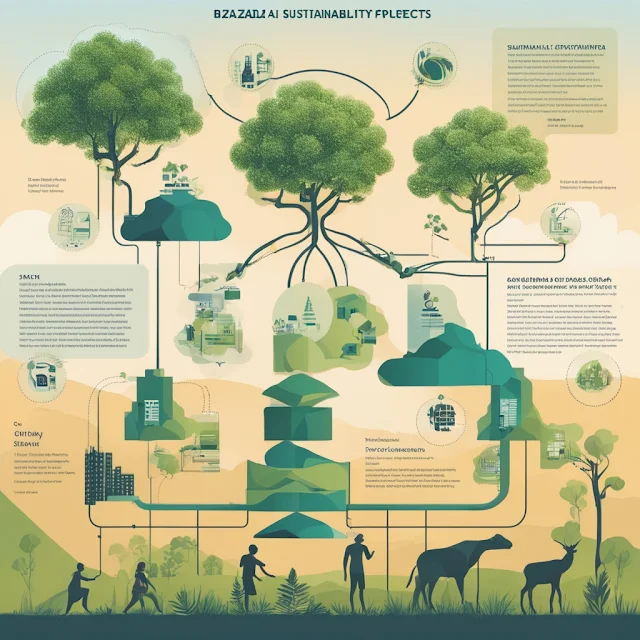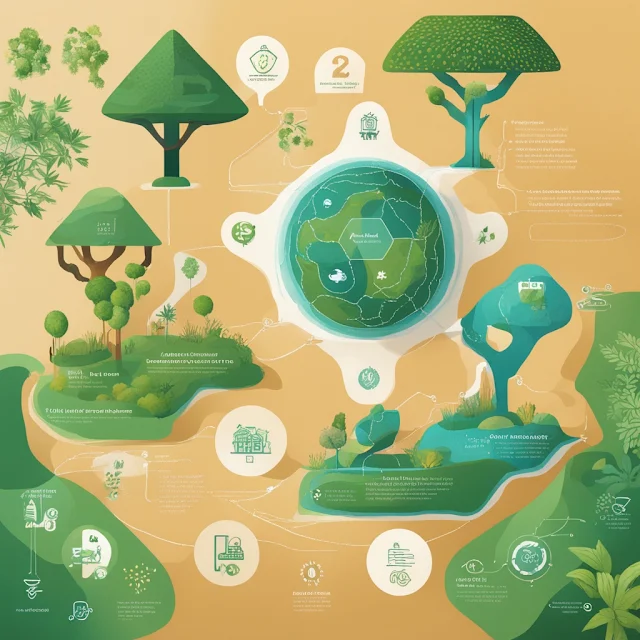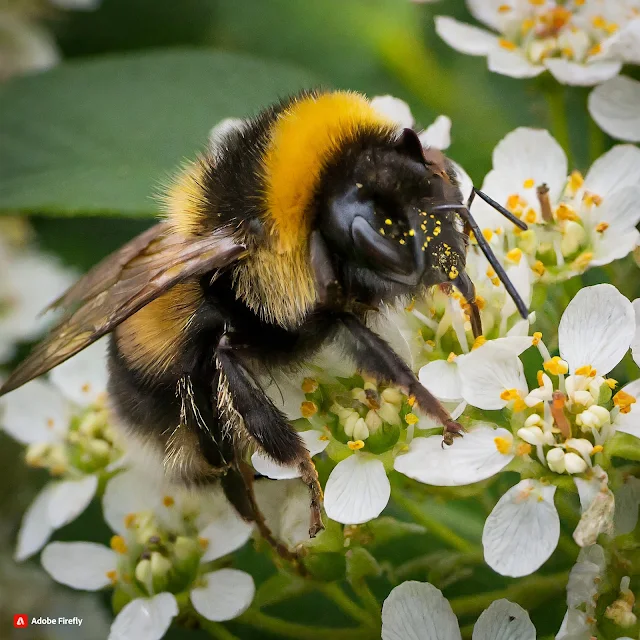Introduction AI for Sustainability Projects
The fight against climate change and achieving true sustainability demands innovative solutions, and Artificial Intelligence (AI) emerges as a potential game-changer.
This revolutionary technology, capable of analyzing colossal datasets and uncovering hidden patterns, holds immense promise for safeguarding our planet.
Imagine AI-powered smart grids predicting energy demand with pinpoint accuracy, dynamically adjusting resources to match, and slashing carbon footprints. Agriculture, too, can undergo a sustainable transformation with AI-driven systems optimizing water usage, identifying optimal planting times, and minimizing fertilizer waste. These are just a glimpse of the possibilities – AI can guide us towards building more efficient cities, harnessing renewable energy with greater precision, and even predicting and mitigating environmental threats like deforestation and pollution.
Table: AI for Sustainability
| Feature | Description |
|---|---|
| Definition | The application of AI technologies to address environmental challenges and promote sustainable practices. |
| Goals | Reduce carbon emissions, conserve resources, promote renewable energy, protect biodiversity, and improve sustainability. |
| Key Technologies | Machine learning, deep learning, natural language processing, computer vision, data analytics |
| Applications | Climate modeling, renewable energy optimization, resource management, conservation efforts, sustainable agriculture, smart cities |
| Benefits | Improved efficiency, reduced environmental impact, cost savings, innovation |
| Challenges | Data availability, model complexity, ethical considerations, scalability |
| Future Trends | Explainable AI, integration with IoT, development of new AI techniques, collaboration between academia, industry, and governments |
| Societal Implications | Positive impact on climate change, improved quality of life, economic benefits |
Harnessing AI's full potential for sustainability requires responsible implementation. Addressing ethical concerns and ensuring bias-free algorithms is crucial for equitable solutions. We must also prioritize energy efficiency in AI development and operation, lest the technology we deploy to combat environmental issues ends up contributing to them. By approaching AI with foresight and unwavering commitment to sustainability, we can forge a future where this powerful tool empowers us to live in harmony with our planet.
AI for Sustainability Projects: A Glimpse into the Future
The potential of AI to revolutionize sustainability efforts is vast and inspiring. Here are just a few examples of exciting projects harnessing this technology for a greener future:
1. Mbaza AI: This South African project uses AI-powered cameras and sensors to monitor illegal wildlife poaching in real-time. The system analyzes footage to identify suspicious activity and alert rangers, drastically improving response times and protecting endangered species.
2. Pachama: This AI platform helps businesses and investors assess and manage their deforestation risks within their supply chains. By analyzing satellite imagery and other data, Pachama identifies areas prone to deforestation and guides companies towards sustainable sourcing practices.
3. Open Climate Fix: This AI-powered platform helps communities around the world adapt to climate change. By analyzing local weather data and predicting extreme weather events, Open Climate Fix provides actionable insights for communities to prepare and build resilience.
4. Mobius: This project developed an AI system to automatically detect and classify whales from aerial imagery. This data is crucial for whale conservation efforts, aiding in population monitoring, migration tracking, and identifying threats like ship collisions.
5. Bumble Bee Watch: This citizen science project leverages the power of collective action and AI. People contribute photos and location data of bumblebees, and an AI system analyzes this data to map bee populations, track their decline, and inform conservation strategies.
AI for Sustainability Projects: Mbaza AI
Mbaza AI: Guardian of the Wilds
Deep within the lush rainforests of Gabon, a silent sentinel watches. Mbaza AI, a groundbreaking project harnessing the power of artificial intelligence, stands guard against a silent threat: illegal wildlife poaching.
A Powerful Vision System:
Imagine a network of AI-powered cameras strategically placed along animal corridors. These cameras, equipped with Mbaza's intelligent vision system, tirelessly scan the footage, meticulously analyzing every movement within their range. Unlike their human counterparts, Mbaza AI never sleeps, never tires, and never misses a beat.
Unmasking the Poachers:
With lightning speed and unerring accuracy, Mbaza AI identifies suspicious activity. The rustle of leaves in the undergrowth, the glint of a snare, the telltale footprints in the damp earth – nothing escapes its watchful gaze. When it detects potential poaching, the system springs into action, sending real-time alerts to park rangers.
Saving Precious Lives:
Armed with this critical information, rangers can respond swiftly and effectively. Poachers, once able to operate with impunity under the cloak of darkness and dense foliage, are now exposed. Precious minutes and miles are saved, often making the difference between life and death for endangered species.
Beyond Poaching:
Mbaza AI's impact extends far beyond simply deterring poachers. The rich data collected by the cameras provides valuable insights into animal behavior, migration patterns, and habitat use. This information empowers conservationists to make informed decisions, optimize patrol routes, and develop targeted anti-poaching strategies.
A Beacon of Hope:
Mbaza AI is a shining example of how technology can be harnessed for good. Its success in Gabon serves as a beacon of hope, inspiring similar projects around the world. From tracking illegal logging in the Amazon to monitoring endangered marine life in the Coral Triangle, AI is proving to be a powerful weapon in the fight for our planet's biodiversity.
The Future of Conservation:
As AI technology continues to evolve, Mbaza AI is constantly learning and adapting. Its algorithms are refined with each new piece of data, making it even more efficient and effective at protecting wildlife. The future of conservation looks bright with Mbaza AI standing guard, its intelligent eyes ever vigilant in the watchful defense of our precious natural world.
AI for Sustainability Projects: Pachama
Pachama: Weaving a Future from Forest Fibers
In the ever-urgent fight against climate change, a quiet revolution is brewing beneath the emerald canopy of the world's forests. Pachama, a name echoing the Andean Mother Earth goddess, stands at the forefront of this revolution, using AI and satellite data to weave a more sustainable future.
A Forest Guardian Armed with Algorithms:
Pachama isn't your typical environmental organization. Forget boots on the ground – theirs are satellites in the sky, armed with sophisticated AI algorithms that peer deep into the heart of forests. Their mission? To map and monitor the very forests that play a critical role in absorbing carbon dioxide, the enemy at the heart of the climate crisis.
From Pixels to Protection:
With each satellite image, Pachama's AI brain crunches the numbers, meticulously calculating the amount of carbon stored within the trees. These carbon maps, precise and detailed, serve as powerful tools. Companies seeking to offset their carbon footprint can invest in forest conservation projects identified by Pachama, ensuring their investments directly protect existing forest cover.
More Than Just Numbers:
Pachama's impact goes beyond carbon credits. Their vigilant AI constantly monitors for signs of deforestation, wildfires, or other threats. Early detection means quicker response, potentially saving irreplaceable trees and the carbon they hold captive. This continuous monitoring also empowers local communities to manage their forests sustainably, promoting biodiversity and protecting their livelihoods.
A Global Tapestry of Green:
Pachama's reach extends far beyond any single forest. Their network of satellites and AI collaborators spans the globe, from the lush Amazon to the rugged Indonesian mangroves. Each new partnership, each forest mapped, each carbon credit traded, adds another vibrant thread to their tapestry of green.
The Future Beckons:
With every pixel analyzed, every forest protected, Pachama inches us closer to a future where forests and technology work hand-in-hand. Their vision: a world where businesses offset their emissions by nurturing the very lungs of our planet, where local communities thrive alongside thriving forests, and where climate change, though a potent threat, is met with the collective might of nature and innovation.
Pachama is a reminder that hope flourishes even in the shadow of environmental challenges. In the delicate ecosystem of our planet, Pachama has found a way to weave together technology, nature, and human ingenuity, creating a future where forests not only survive, but thrive, becoming the cornerstones of a truly sustainable world.
AI for Sustainability Projects: Open Climate Fix
Open Climate Fix: Hacking the Climate Crisis with Open Source
Imagine a world where tackling climate change isn't just about lofty goals and distant deadlines, but about immediate action, open collaboration, and accessible tools. That's the world Open Climate Fix (OCF) envisions, and they're building it one line of code and one shared dataset at a time.
Open Source Heroes:
OCF isn't your typical non-profit. Forget stuffy boardrooms and hierarchical structures – this is a dynamic team of climate warriors armed with laptops and a fierce spirit of collaboration. They believe in open-source everything, sharing their code, data, and knowledge with the world for anyone to use and improve.
Hacking the System, One Project at a Time:
Their projects are as diverse as they are impactful. From predicting renewable energy generation to mapping solar panel locations, OCF tackles real-world climate challenges with practical solutions. Their "Solar Mapper" pinpoints rooftops with the most solar potential, empowering communities to harness the sun's energy. Their "PV Forecast" accurately predicts how much power solar panels will generate, helping grid operators integrate renewables seamlessly.
Open Doors, Open Minds:
But OCF's impact goes beyond the code they write. They believe in empowering others, training individuals from all walks of life to become climate-tech heroes. Their workshops and hackathons break down technical barriers, welcoming anyone with a passion for the planet to contribute.
A Network of Fixers:
OCF is more than just a team – it's a community. Their open-source ethos fosters collaboration around the globe, connecting engineers, scientists, and citizens to share knowledge and drive collective action. This network of "fixers" is constantly innovating, finding new ways to hack the climate crisis and build a more sustainable future.
The Code for Change:
Open Climate Fix is a testament to the power of open minds and open source. They're proving that tackling climate change doesn't require exorbitant budgets or exclusive patents – it needs collaboration, transparency, and a shared commitment to action. By democratizing climate tech and empowering communities, OCF is writing the code for a future where everyone can be a hero in the fight for our planet.
AI for Sustainability Projects: Mobius
Mobius: Guardian of the Deep, Powered by AI
Beneath the vast expanse of the oceans, hidden giants glide through the waves. Whales, these majestic creatures, play a vital role in the delicate balance of marine ecosystems. Unfortunately, their very existence is threatened by human activities like ship collisions and entanglements in fishing gear. Enter Mobius, a pioneering project harnessing the power of artificial intelligence to become the silent guardian of these gentle giants.
Seeing Through the Sea's Surface:
Mobius isn't your typical whale-watching tour. Equipped with AI-powered software, it analyzes aerial imagery with the keen eyes of a digital eagle. The system dissects every pixel, recognizing the telltale splashes and ripples that betray a whale's presence even beneath the churning surface.
From Pixels to Protection:
Once a whale is identified, Mobius springs into action. The system meticulously classifies the species, pinpointing its location and direction of movement. This vital information is then shared with researchers, conservationists, and even shipping companies, allowing them to take proactive measures. Ships can reroute to avoid collisions, conservation efforts can be targeted toward specific areas, and researchers can gain valuable insights into whale behavior and migration patterns.
Beyond Whale Watching:
Mobius' impact extends far beyond whale protection. The system can also detect other marine life like seals, dolphins, and even fish schools, contributing to a more comprehensive understanding of ocean ecosystems. This data can inform sustainable fishing practices, protect vulnerable species, and ensure the health of our seas for generations to come.
A Global Watch, a Collaborative Future:
Mobius isn't confined to a single ocean. This innovative technology is adaptable and scalable, ready to be deployed wherever whales need protection. As collaborations with research institutions and conservation groups around the world grow, Mobius' watchful gaze expands, creating a global network of guardians for the creatures of the deep.
A Future Where Whales and Technology Coexist:
Mobius represents a hopeful glimpse into a future where technology and conservation work hand-in-hand. With every whale identified, every collision avoided, every ecosystem protected, Mobius paves the way for a more harmonious relationship between humans and the denizens of the oceans. It is a testament to the power of innovation to not only understand, but also protect, the wonders of the natural world.
AI for Sustainability Projects: Bumble Bee Watch
Bumble Bee Watch: A Buzz for Conservation with Citizen Science
In the vibrant dance of nature, few pollinators play a more critical role than bumblebees. These fuzzy ambassadors of biodiversity, with their cheerful hum and pollen-dusted coats, contribute immensely to the health of ecosystems and agricultural yields. Sadly, bumblebee populations face a multitude of threats, from habitat loss to pesticides. But in the midst of this environmental challenge, Bumble Bee Watch emerges as a beacon of hope, buzzing with the power of citizen science.
Empowering Everyone to be a Bee Guardian:
Imagine a world where anyone, anywhere, can become a protector of these crucial pollinators. Bumble Bee Watch makes this a reality. Through their user-friendly website and mobile app, anyone can submit sightings of bumblebees, sharing the location, species, and even photos of these fuzzy friends. This collective data becomes a powerful tool for conservationists.
From Observations to Insights:
With each bumblebee sighting, Bumble Bee Watch paints a clearer picture of these vital insects. The project tracks population distribution, identifies at-risk species, and monitors the impact of environmental changes. This knowledge empowers researchers and conservationists to develop targeted strategies to protect bumblebees, from restoring critical habitats to advocating for bee-friendly practices.
More Than Just Data:
Bumble Bee Watch isn't just about collecting data; it's about sparking a love for nature. The website and app provide educational resources, fun quizzes, and engaging activities that help raise awareness about the importance of bumblebees and the threats they face. This inspires individuals of all ages to become champions for these fuzzy pollinators.
Building a Global Buzz:
Bumble Bee Watch transcends borders, with its reach extending across North America and beyond. This collaborative effort unites scientists, conservationists, and concerned citizens, creating a powerful network of bumblebee advocates. As the data and knowledge base expand, so too does our understanding and ability to protect these vital insects on a global scale.
A Future Where Bumblebees Thrive:
Bumble Bee Watch exemplifies the power of citizen science to drive conservation. By engaging the public, collecting valuable data, and fostering a love for nature, this project paves the way for a future where bumblebees, and the ecosystems they sustain, can thrive. It's a reminder that even the smallest actions, like recording a bumblebee sighting, can contribute to a larger buzz for conservation.
Conclusion AI for Sustainability Projects
Artificial Intelligence (AI) emerges as a potent force for good in the fight for sustainability. Its ability to analyze vast amounts of data, uncover hidden patterns, and optimize processes holds immense potential across various environmental and social challenges.
From the silent guardians of wildlife like Mbaza AI and Pachama to the community-driven citizen science of Bumble Bee Watch and the open-source innovation of Open Climate Fix, AI projects are paving the way for a more sustainable future. These initiatives demonstrate the diverse applications of AI, tackling deforestation, protecting endangered species, predicting weather patterns, and empowering communities to adapt to climate change.
However, harnessing AI's full potential for sustainability requires responsible and ethical implementation. We must address issues of bias, ensure transparency in algorithms, and prioritize environmental sustainability in technology development. Furthermore, collaboration between researchers, policymakers, and practitioners is crucial to ensure the effectiveness and equitable distribution of AI-driven solutions.
AI is not a silver bullet, but a powerful tool in our collective toolbox for building a more sustainable future.
By combining it with human ingenuity, ethical considerations, and unwavering commitment to the environment, we can leverage AI's capabilities to protect our planet and ensure a thriving future for generations to come.
Here are some key takeaways:
- AI offers diverse applications for tackling sustainability challenges, from optimizing resource use to protecting endangered species.
- Responsible and ethical implementation is crucial to avoid amplifying existing inequalities and environmental burdens.
- Collaborative efforts between stakeholders are essential for maximizing the impact of AI for sustainability.
- Continuous innovation and research are needed to unlock the full potential of AI for a sustainable future.
The journey towards a sustainable future is one we must embark on together. By embracing the potential of AI while ensuring its responsible use, we can create a greener, healthier, and more equitable world for all.










